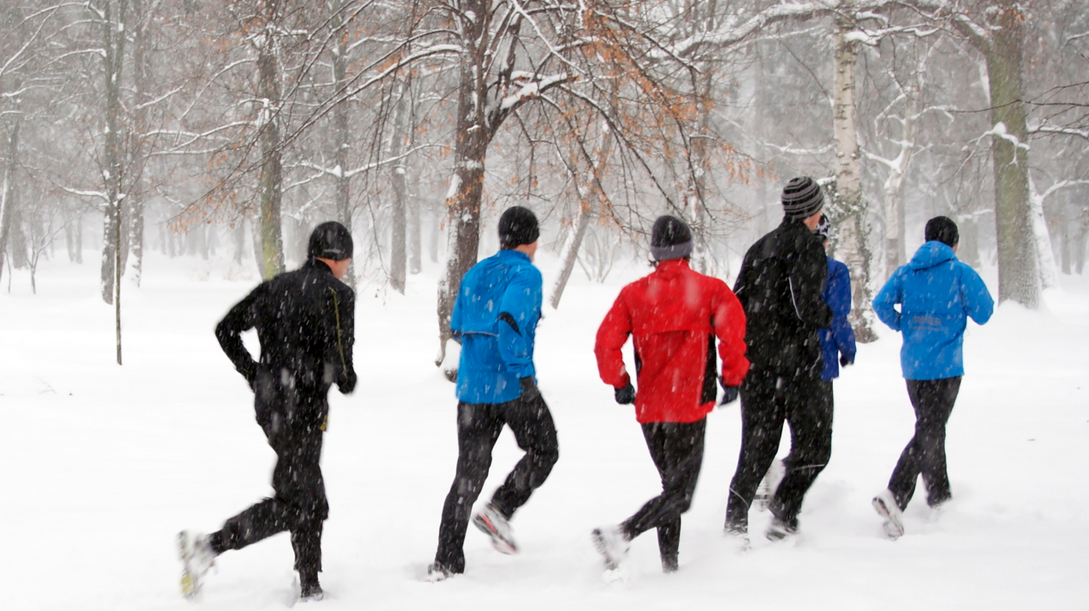Once a tool for serious athletes, heart rate monitoring has increased in popularity over the years and is now entering the mainstream—thanks in part to companies like Apple, Microsoft and even Victoria Secret (yes it’s true!), coming out with accessible heart rate monitoring products.
However the question still remains, now that your heart rate is easier than ever to continuously monitor during exercise…should you?
We certainly think so! Here are 4 reasons why:
 1. It’s a personalized way to train. Whether training for a race or simply hitting the roads for fun, most people default to running by either perceived effort or by an un-personalized pace dictated from an overly generalized training plan. Everyone is unique and running based on heart rate makes your workouts customized to your body.
1. It’s a personalized way to train. Whether training for a race or simply hitting the roads for fun, most people default to running by either perceived effort or by an un-personalized pace dictated from an overly generalized training plan. Everyone is unique and running based on heart rate makes your workouts customized to your body.
 2. It helps you adjust based on environmental factors. Summertime might bring you hot humid days, while the fall delivers cool crisp weather all through the day. With variations in weather and other environmental factors, it’s important to remember that not all 10-minute paced miles are created equal. Running by heart rate, as opposed to pace, helps ensure you adjust the pace as necessary when your surroundings evolve throughout the year.
2. It helps you adjust based on environmental factors. Summertime might bring you hot humid days, while the fall delivers cool crisp weather all through the day. With variations in weather and other environmental factors, it’s important to remember that not all 10-minute paced miles are created equal. Running by heart rate, as opposed to pace, helps ensure you adjust the pace as necessary when your surroundings evolve throughout the year.
 3. It prevents you from overtraining. Healthy exercise requires a mixture of hard and easy workout days, yet many runners tend to go too hard too often without giving their body a rest. If you find your heart rate is higher than expected (either during or after exercise), it could be a sign you’re overtraining—which eventually can lead to injury or overall physical and mental burnout. Monitoring heart rate just might prevent you from being stuck on the sidelines for weeks (or even months!) due to injury.
3. It prevents you from overtraining. Healthy exercise requires a mixture of hard and easy workout days, yet many runners tend to go too hard too often without giving their body a rest. If you find your heart rate is higher than expected (either during or after exercise), it could be a sign you’re overtraining—which eventually can lead to injury or overall physical and mental burnout. Monitoring heart rate just might prevent you from being stuck on the sidelines for weeks (or even months!) due to injury.
 4. It keeps you engaged and switches up your routine. If your fitness routine is becoming stale or you find running becoming tedious, trying something new can help keep you entertained during workouts and reinvigorate your mindset. If you’ve never ran according to heart rate, it might just be the oomph you need to get through your winter workouts.
4. It keeps you engaged and switches up your routine. If your fitness routine is becoming stale or you find running becoming tedious, trying something new can help keep you entertained during workouts and reinvigorate your mindset. If you’ve never ran according to heart rate, it might just be the oomph you need to get through your winter workouts.
Have you ever trained by heart rate? Does it intrigue you? Will you be getting a heart rate device in the future?


Great to see a post highlighting the importance of heartrate mindfulness during workouts/training– structuring your workouts around your average heartrate can be a highly beneficial way to keep track of your fitness progress.
I want to know more about heart rate training. How do I calculate what my heart rate should be for the different types of training days?
I’d begin with getting a complete physical to establish your health. There are issues that lurk behind apparent healthfulness and it would be a shame to drop dead over an issue you could have detected.
Work with your BMI and age to establish the relative heart rate ranges to work with. People with substantial weight issues would do well to work on an elliptical and avoid loading their knees until their weight is in a safe range. It would be a real bitch to lose weight and recover fitness and wipe out your knees in the process.
If you aren’t severely overweight, the “Couch to 5K” plans provide a plan you can use with your heart monitor.
But take it easy and don’t be in a hurry. If .you hurt yourself it will ruin what you can really enjoy accomplishing.